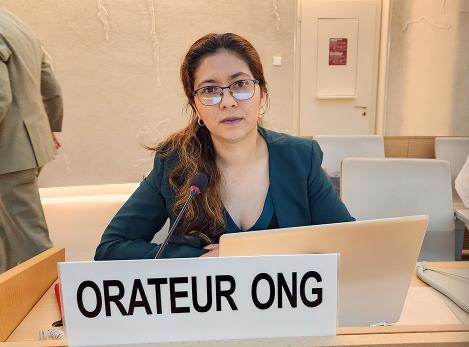
“We live in a world scarred by inequality and drowning in global public debt,” said Volker Türk, UN Human Rights Chief. “Today, the world’s poorest economies are facing the toughest conditions in two decades – deeper in debt and increasingly vulnerable to shocks, while international aid dwindles.”
Türk made his statement during the 2024 Social Forum of the Human Rights Council. The Social Forum is an annual meeting that provides a unique space for open and interactive dialogue between civil society, Member States, intergovernmental organizations, and other partners. In 2024 it focused on the contribution of financing for development to the advancement of all human rights for all.
According to UN Human Rights, developing countries often don’t have enough resources to tackle challenges and they’re constantly up against major financial constraints, including low tax revenues, high debt, rising inflation and interest rates, unfavourable trade terms and conditions, and limited access to investment opportunities. These factors make it difficult for these countries to make economic progress and achieve sustained development.
“Since 2020, around 5 billion people have become poorer. And more than 40 percent of the global population live in countries that spend more on servicing their debt than on either education or health,” Türk said. “We urgently need to tackle the high cost of debt, with a more effective process for restructuring unsustainable sovereign debt.”
However, there is a chance to create a clear blueprint for action – but it must be guided by key principles. These include overhauling the international financial system to fix the long-standing structural and systemic injustices and strengthening international development cooperation.
“We need a change in the debt architecture. We need rules for responsible lending and borrowing. We need a frame for responsible debt management, and we need mechanisms for debt crisis resolution,” said Iolanda Fresnillo, Policy and Advocacy Manager for Debt Justice, at the European Network on Debt and Development, during her presentation about climate change and debt sustainability analysis.
Fresnillo added that a new framework is needed and that it should encompass a global consensus regarding the rules of the protocols and principles throughout the different stages of debt.
Türk said that we need to tackle global tax abuse, redesign the global tax architecture to make it fairer and more inclusive, and reform global tax rules to increase government resources.
“That means implementing progressive tax policies; and ensuring that human rights are front and centre during the drafting of the UN Convention on Tax Cooperation”, he said.
For economist Jayati Ghosh, the last ten years have been crucial for international taxation.
“We co-existed with an international tax regime that has been in place for over 100 years. It is completely outdated and unfit for today"s digital and globalised world. So finally, countries decided to take action through international cooperation to deal with one of these most toxic aspects of globalisation, that is, tax avoidance by multinational companies and the richest and most powerful individuals,” said Ghosh, a Professor of Economics at the University of Massachusetts Amherst, Member of the High-level Advisory Board on Economic and Social Affairs and the Independent Commission for the Reform of International Corporate Taxation.
The international tax system fosters and perpetuates inequality between and within countries and mainly it does this by allowing tax havens to exist, she added.
“These enable the richest of our societies to hide their wealth using very opaque financial services and tax havens are also the favourite location for booking profits of the largest and most powerful multinationals in the world”, Ghosh said.
Ghosh said that the UN is a good forum for creating a comprehensive international tax deal as universal membership and a collectively built agenda give more legitimacy to the process, more understanding by all parties involved and more chances of compliance.
“[At the UN] developing countries are better organised and have more leverage. This is important not just for tackling emissions, but also for taxing extreme wealth or what are called ‘high net worth individuals’ who also currently manage to pay very little or even no taxes. Today, in many countries, billionaires pay much less taxes than ordinary citizens in proportion to their income,” she added.
Türk believes there’s a need to build inclusive human rights economies that prioritise people and planet instead of profit at all costs – and only for a few. Economies that promote a just and equitable distribution of resources.
“
Our world cannot be based on a model that offers health for some, wealth for some, jobs for some, rights for some.
“
Volker Türk, UN Human Rights Chief
The Social Forum provides an opportunity to build momentum towards revitalizing the Financing for Development Agenda, anchored in human rights, in lead up to the upcoming Fourth International Conference on Financing for Development, scheduled for June-July 2025 in Seville, Spain.












